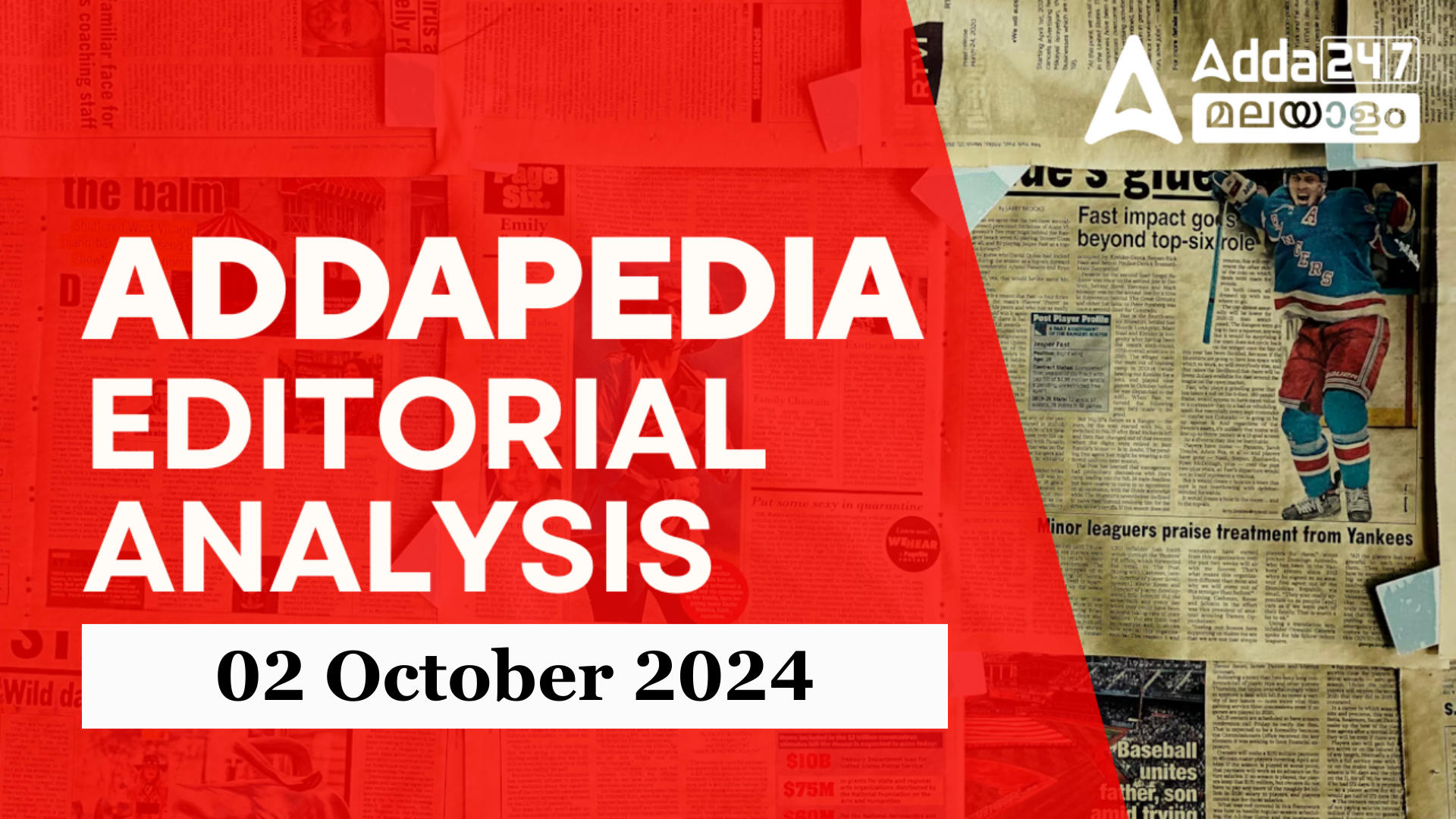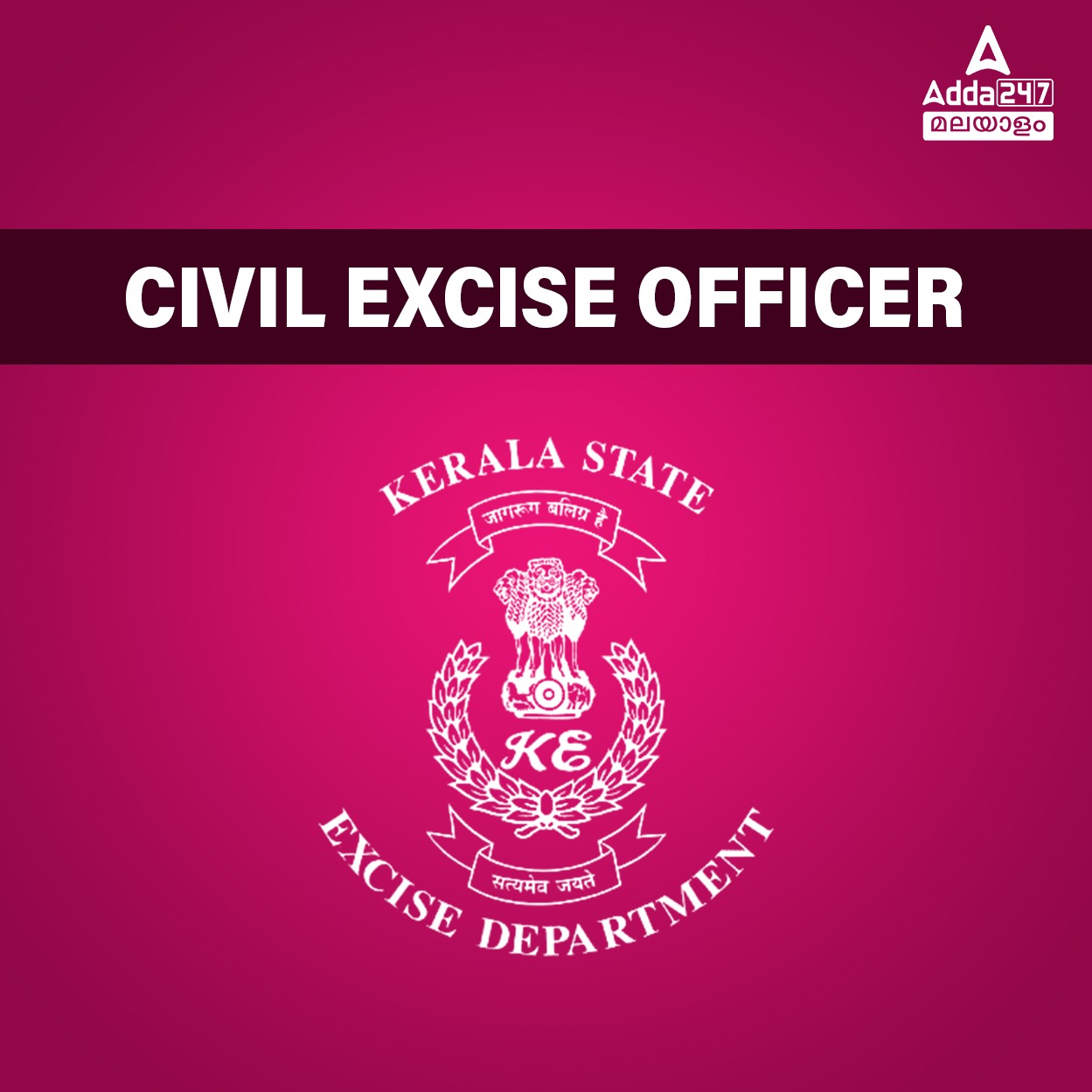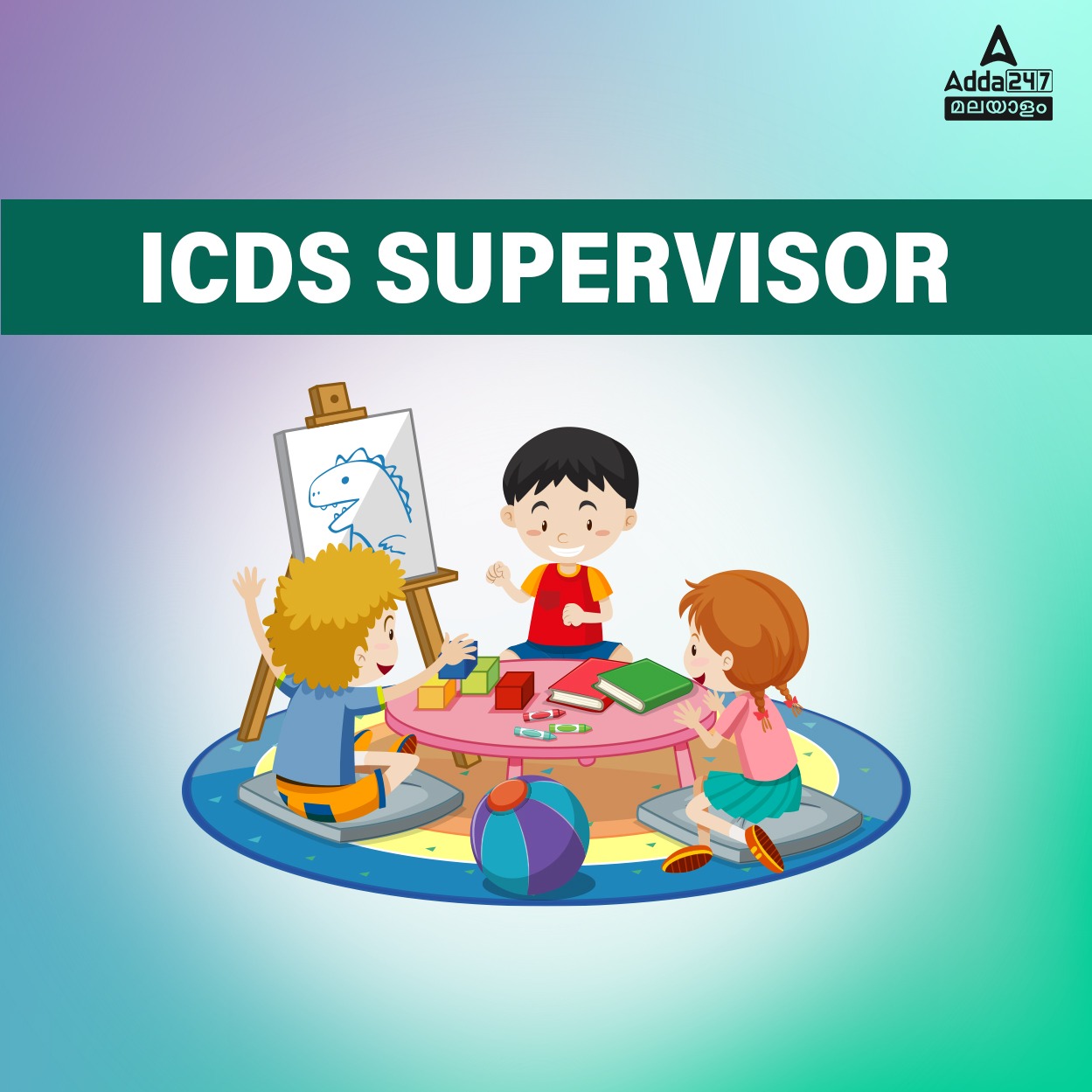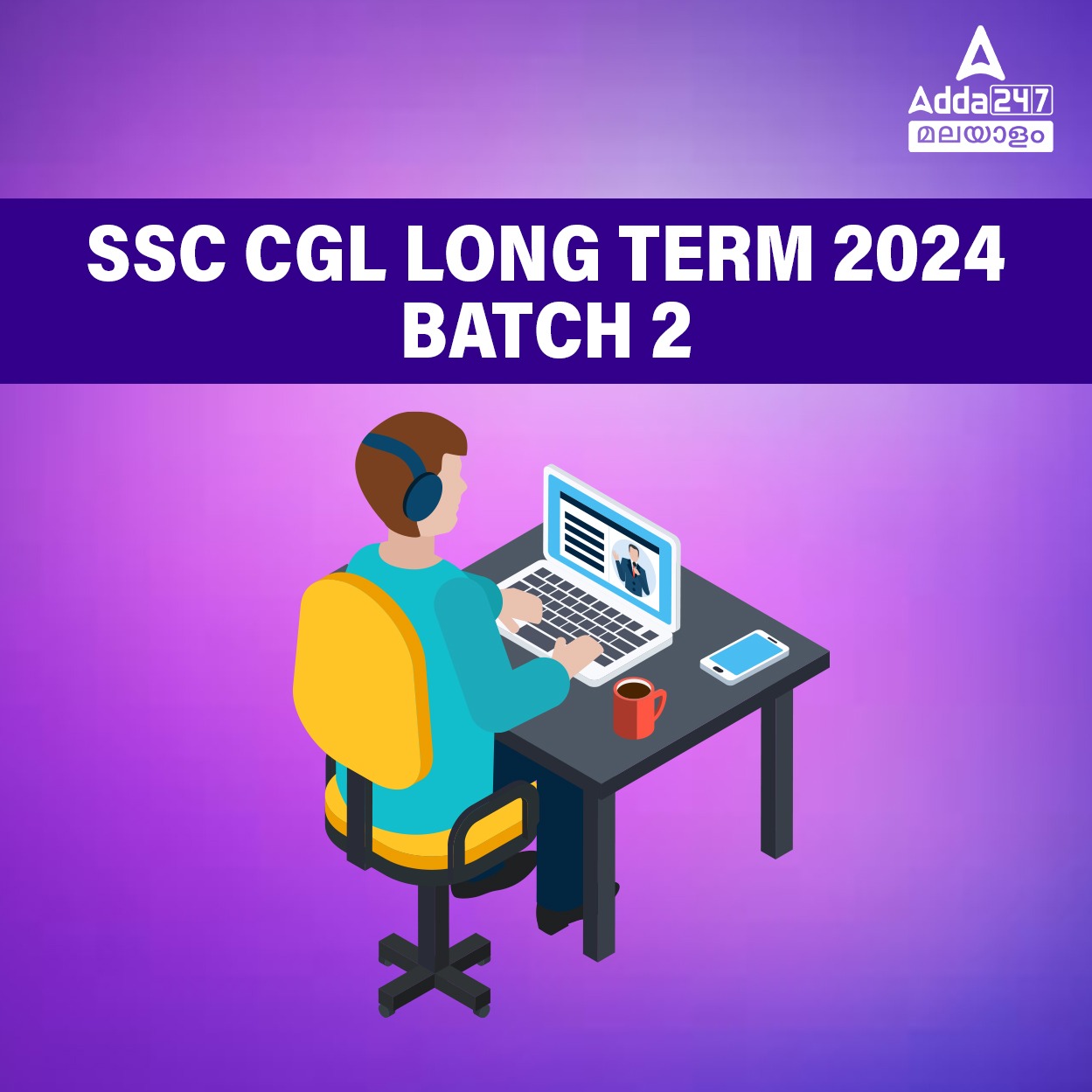Table of Contents
Addapedia Editorial Analysis: Daily News Editorial Analysis 02 October 2024
Addapedia Editorial Daily News , 02 October 2024: In this Addapedia Editorial Analysis, We cover Important News Editorials from Newspapers and provide you with detailed analysis. This ADDAPEDIA Editorial Analysis will help you in understanding the National and International events Current affairs and the background of a particular topic. This comprehensive News analysis will help you in Clearing CA and Interview for many exams.
Editorials usually cover a particular topic that might be National, State or any International event which is most important to acquire brief knowledge about the event. Editorials are written by Famous news analysts, Politicians, Business analysts, Civil Servants or a person who has immense knowledge in that particular field. Knowing Editorials will not only understand the geo-political relations but also how to write and describe any particular issue which helps especially in PSC, SSC and Banks Exams.
The Waqf Bill 2024 is one that needs review
(The Hindu, 02-10-24)
Context: On August 8, the Union government introduced a Bill (named Unified Waqf Management, Empowerment, Efficiency, and Development Act, 2024) in the Lok Sabha to amend the 1995 Waqf Act (1995 Act).
- The draft legislation is heralded by the government as a comprehensive overhaul aimed at enhancing “the efficiency of the administration and management of the waqf properties.”
What is India’s ‘waqf’ law?
- In Islamic law, waqf refers to property dedicated in the name of God for religious and charitable purposes.
- This can include any movable or immovable property set aside for the public good, embodying an act of piety that allows Muslims to extend their charitable deeds beyond their lifetime.
- A waqf can be established through a formal deed or instrument, or a property can be deemed waqf if it has been used for religious or charitable purposes over an extended period.
- The proceeds from such properties are typically used to maintain mosques, fund schools or provide for the poor.
- However, once designated as waqf, the property cannot be transferred through inheritance, sold, or given away.
- A non-Muslim is also allowed to create a waqf as long as the objective of creating it aligns with Islamic principles.
- In India, waqfs are regulated by the 1995 Act. Waqf properties are identified and delineated through a survey conducted by the State government
What are the key changes in the proposed law?
- Definition: Only Muslims (practicing for 5+ years) can create waqfs through formal deeds
- Abolishes ‘waqf by use’ concept.
- This concept permits a property to be considered waqf based on usage, even if the original deed was disputed. Traditionally, waqf properties were often dedicated orally until formal documentation became standard practice.
- Government properties cannot be claimed as waqf.
- Any government property identified or declared as waqf property, before or after the commencement of this Act, shall not be recognised as waqf property
- District collectors to survey waqf properties.
- Previously managed by survey commissioners under the 1995 Act
- The district collector as the final arbiter to determine whether a property qualifies as waqf.
- Earlier it was the Waqf Tribunal
- Once a determination is made, the collector must update the revenue records and submit a report to the State government.
- Centralized registration system to improve the accuracy of Waqf property records.
- All information about waqf properties must be uploaded to this portal within six months of the new law’s enactment.
- Establishes the Central Waqf Council — a national advisory body under the Ministry of Minority Affairs.
- The Council ensures the uniform administration of waqf properties across the country and is headed by the Union Minister of Minority Affairs.
- It also advises the Union government on waqf-related issues, including policy development, implementation of waqf laws, and resolution of inter-State disputes.
- Non-Muslims included in Waqf institutions – the Central Waqf Council, State Waqf Boards, and waqf tribunals
- It empowers the Centre to appoint three MPs (two from the Lok Sabha and one from the Rajya Sabha) to the Central Waqf Council without specifying that they have to be Muslims.
- Under the 1995 Act, the three MPs to be included in the Council had to be from the Muslim community.
- Also, State Waqf Boards have to include two non-Muslims and two women as members.
- Waqf tribunals: Two-member body, six-month dispute resolution
- The tribunal will now consist of a district judge and an officer of joint secretary rank to the State government.
- Centre can audit waqfs
- Auditor to be appointed by the Comptroller and Auditor-General of India, or by any officer designated by the Central Government for that purpose
- Waqf Boards are required to audit their accounts annually, selecting auditors from a panel constituted by the State governments
- Court intervention allowed in disputes
- It removes the finality of decisions made by waqf tribunals, allowing aggrieved parties to appeal directly to the concerned High Court.
What are the key concerns raised about the Waqf Bill 2024?
- Proposes to reserve seats for non-Muslims in the Central Waqf Council and State Waqf Boards
- Removes the statutory requirement of being Muslim for a majority of seats in these bodies
- Reduces Muslim membership in the Central Waqf Council and State Waqf Boards from 100% to less than 50%
- Drops the requirement for the CWC Secretary and CEOs of State Waqf Boards to be Muslim
- Removes expert on Muslim law from the Waqf tribunal’s bench
- Waters down punishments for violations by encroachers and other offenders
- Unlike previous committees, it did not reach out to stakeholders or conduct extensive research
- The Central Waqf Council, which should have been involved, has been kept largely vacant for years
- The Bill was drafted and presented without significant input from the Muslim community
What recommendations does the article make regarding the Waqf Bill 2024?
- Return the Bill to the Ministry due to procedural irregularities and infringements
- Quickly reconstitute the Central Waqf Council in accordance with existing law
- Have the reconstituted council steer the process of collecting facts, data, and views from stakeholders
- Re-examine and clarify certain proposals, such as the inclusion of women members
- Address concerns about potential violations of constitutional rights (Articles 15, 25, 26, 29)
Can you answer the following question?
Critically examine the proposed changes in the Waqf Bill 2024 and their potential impact on the management of Waqf properties in India.
In France, a summit for diplomacy, tech and diversity
(The Hindu, 02-10-24)
Context: France will host over 100 Heads of states and government and high-ranking officials for the 19th Francophonie Summit on October 4-5, 2024.
What are the main objectives and themes of the 19th Francophonie Summit?
- Renewal of multilateralism
- Addressing digital issues linked to the development of Artificial Intelligence
- Promoting cultural and linguistic diversity
- Theme: “Create, Innovate and do Business in French”
- Introducing a new method of discussion allowing more direct exchange with civil society stakeholders
How does the article relate the Francophonie Summit to India’s interests?
- France supports India’s bid for a permanent seat in the UN Security Council
- The summit’s focus on digital technology and AI aligns with India’s interests in these areas
- The FrancoTech Fair offers opportunities for young Indian innovators
- The upcoming India-France Year of Innovation in 2026 is mentioned as an important future event
What is the significance of the International Organization of La Francophonie (OIF)?
- Founded in 1970 to promote the French language and cooperation between French-speaking countries
- Has 88 Member States and Governments (54 full members, 7 associate members, 27 observers)
- Promotes democracy, peace, prosperity, and cultural/linguistic diversity
- Provides a cooperation framework for global issues like digital technology, gender equality, and economic matters
Can you answer the following question?
Discuss the significance of the 19th Francophonie Summit in the context of global multilateralism and technological advancement. How can India leverage its relationship with Francophone countries to further its diplomatic and technological goals?
Weekly Current Affairs in Short (23rd to 29th September 2024) Download PDF
കേരളത്തിലെ എല്ലാ മത്സര പരീക്ഷകൾക്കും ഓൺലൈൻ ക്ലാസുകൾ, വീഡിയോ കോഴ്സുകൾ, ടെസ്റ്റ് സീരീസ്, പുസ്തകങ്ങൾ, മറ്റ് പഠന സാമഗ്രികൾ എന്നിവ ചുവടെ നൽകിയിരിക്കുന്ന ലിങ്കിൽ ക്ലിക്കുചെയ്ത് കണ്ടെത്താനാകും.
***വരാനിരിക്കുന്ന പരീക്ഷകളിൽ വിജയിക്കാൻ ഞങ്ങളോടൊപ്പം ചേരുക***
*ലക്ഷ്യത്തിലേക്കുള്ള ആദ്യ ചുവടുവെപ്പ് | ADDA247 മലയാളത്തിൽ പരിശീലനം ആരംഭിക്കൂ*
Adda247 Malayalam Youtube Channel |
Telegram group:- KPSC Sure Shot Selection











